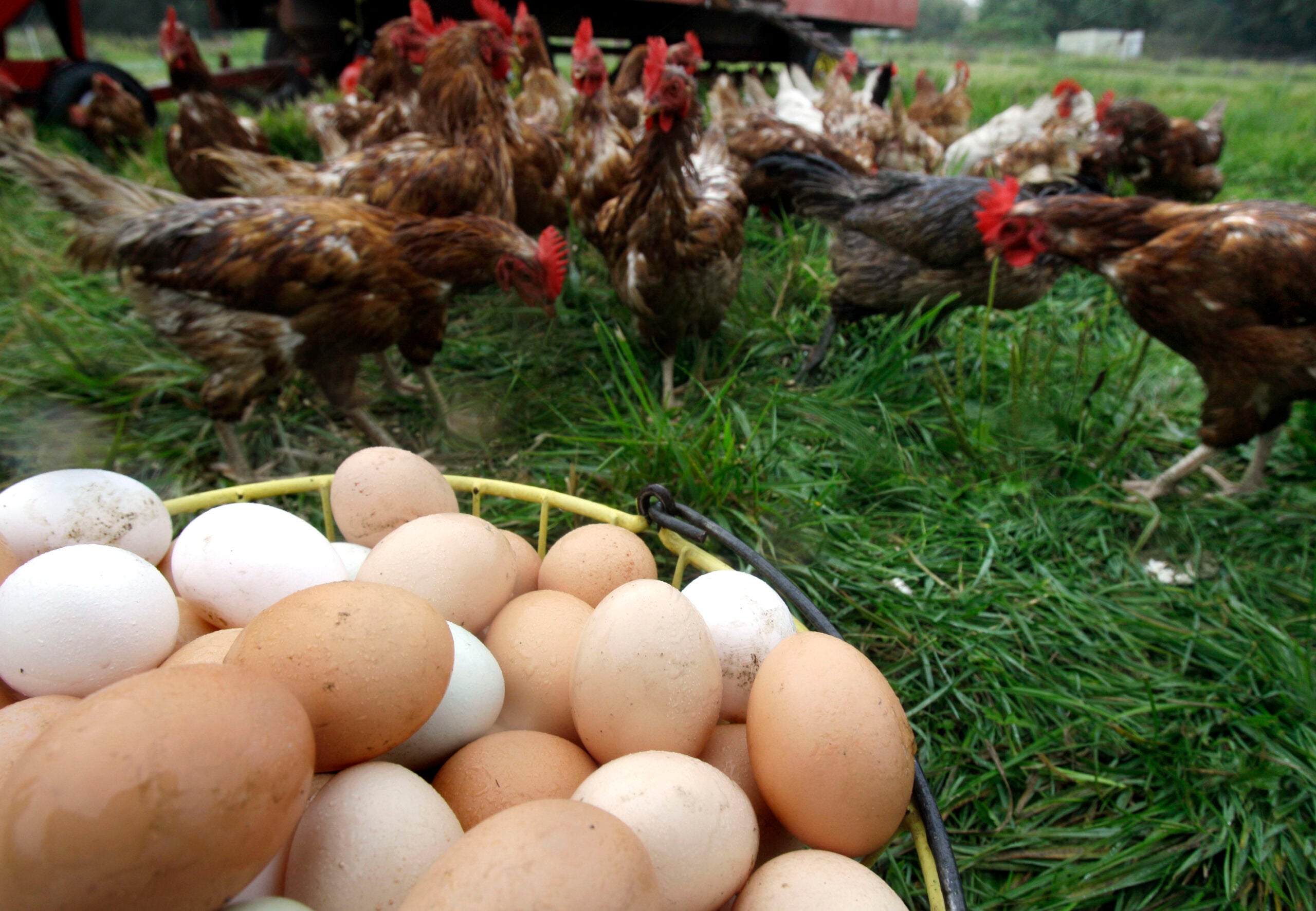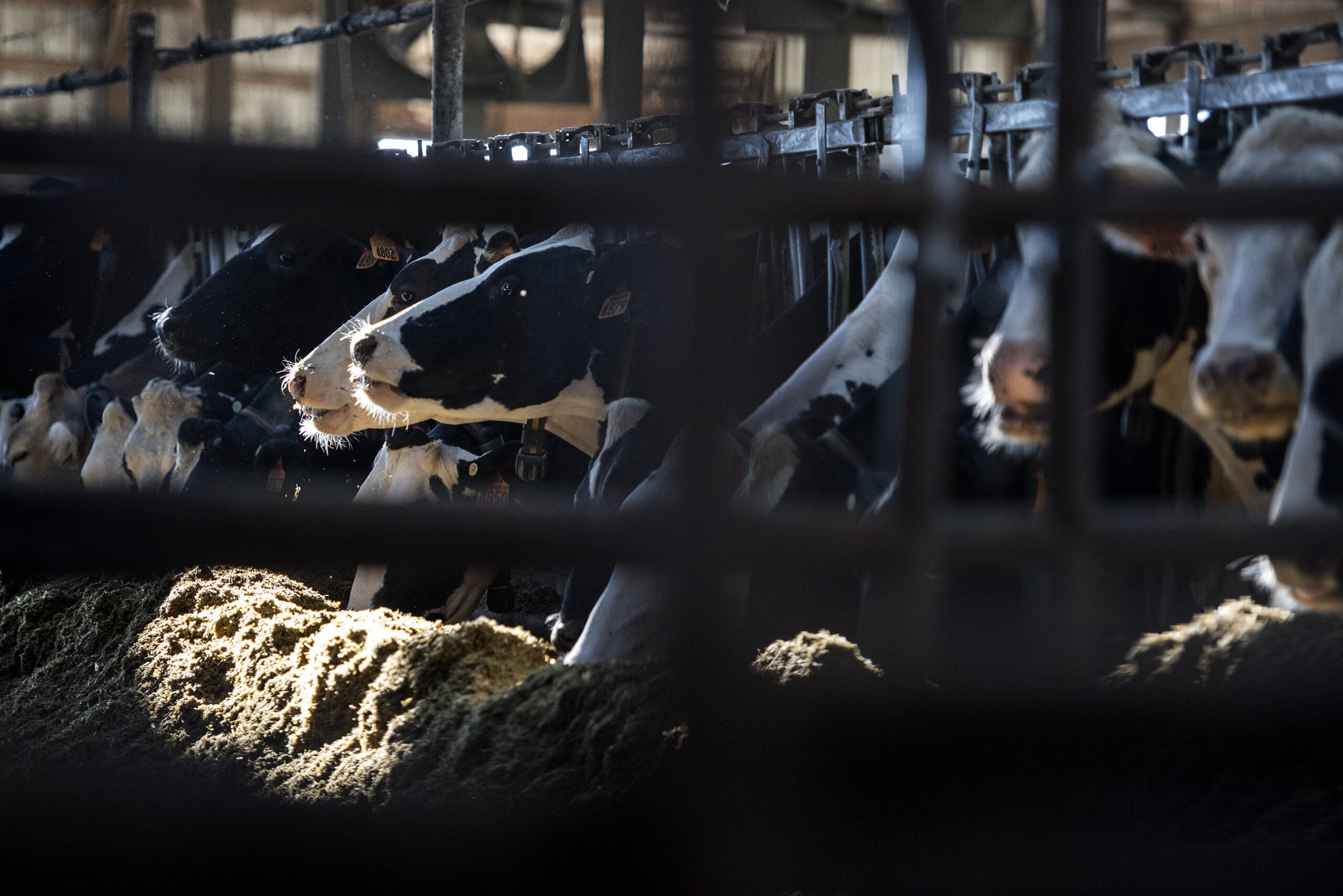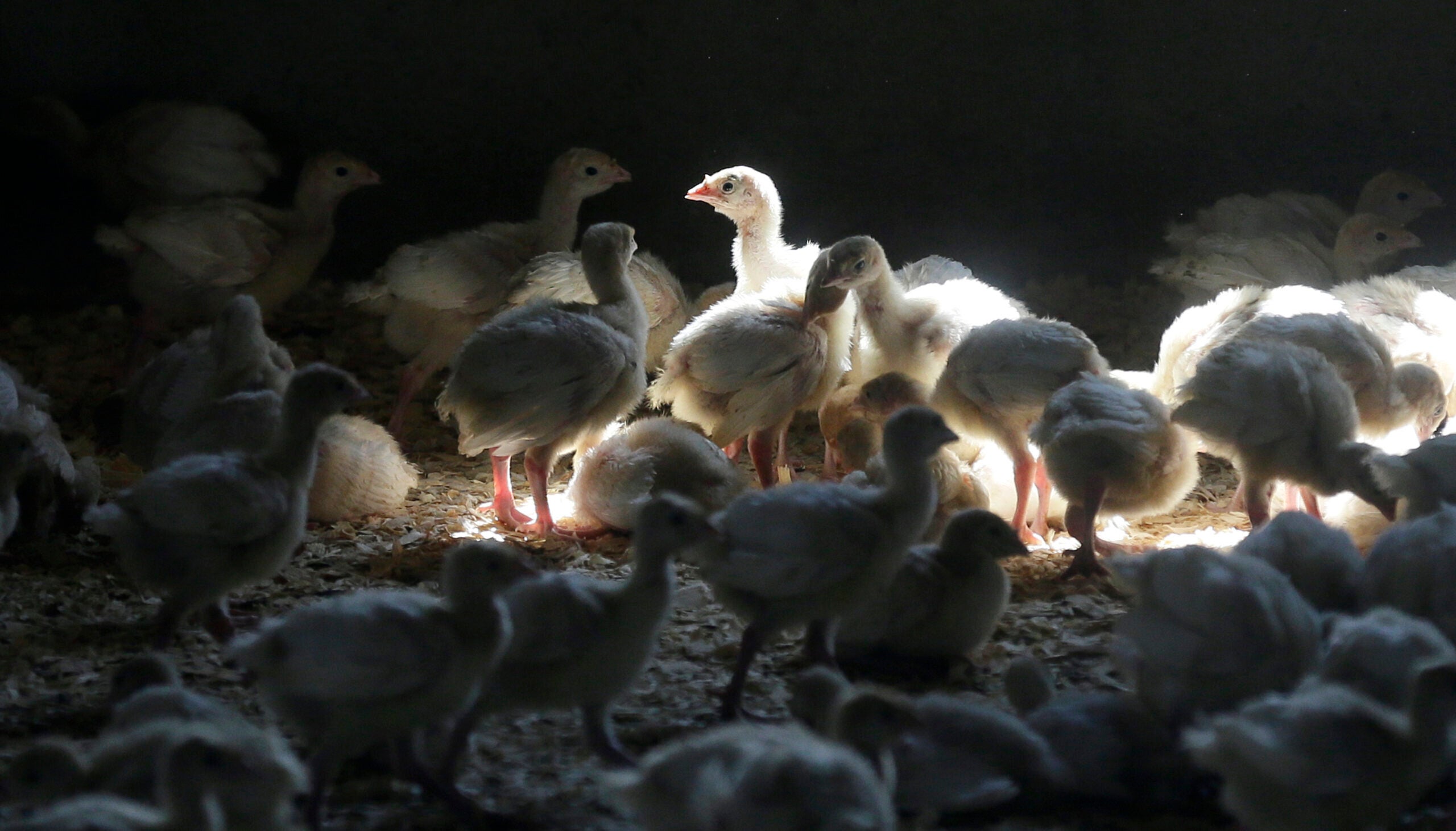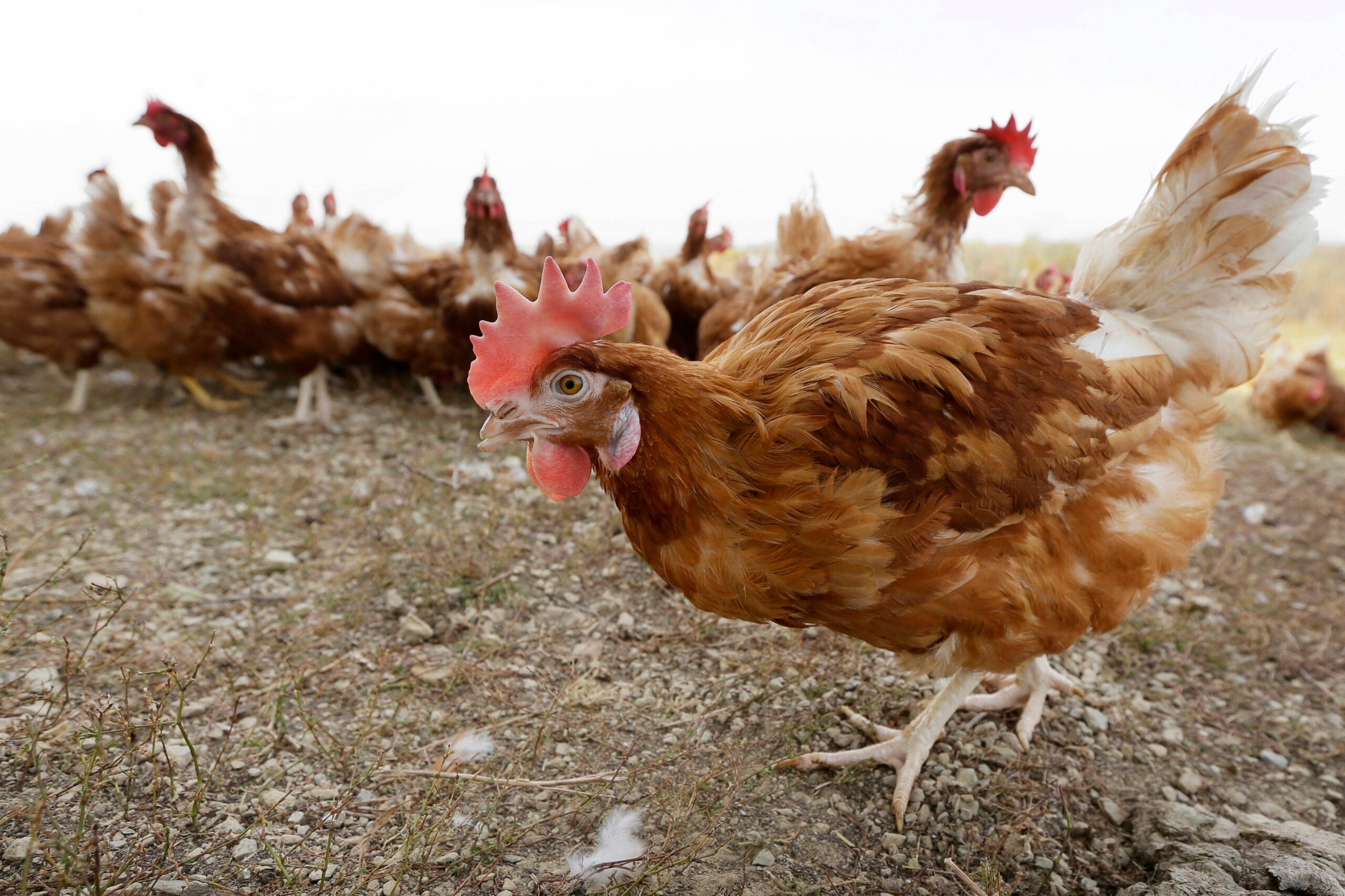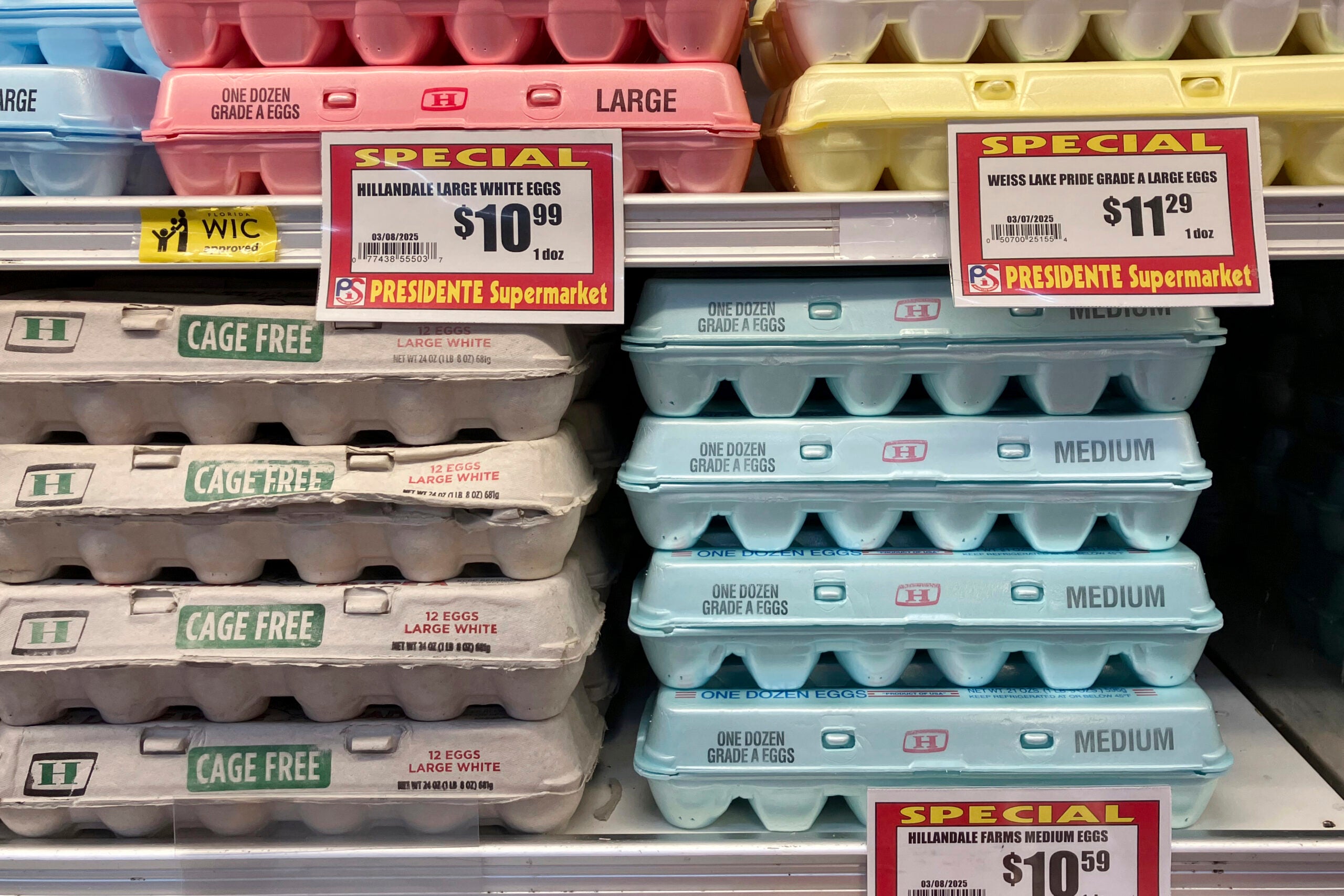Egg prices have been climbing as farmers deal with the impact of the spread of avian flu.
But the highly pathogenic avian influenza, which has limited supply, hasn’t impacted all eggs equally. Specialty eggs, which are traditionally more expensive, look more appealing.
Last week, the supermarket price of a dozen nutritionally-enhanced brown caged eggs was $4.49, while the organic version was $4.99, according to a weekly report from the U.S. Department of Agriculture. About four months ago, the same caged eggs were $3.93 and organic eggs were $5.91.
News with a little more humanity
WPR’s “Wisconsin Today” newsletter keeps you connected to the state you love without feeling overwhelmed. No paywall. No agenda. No corporate filter.
Some organic farmers said they are intentionally not raising their prices.
For Steve Albert, who runs the certified organic Prairie Bluff Farm near Mount Horeb, it’s about the long-term relationship with his customers.
“They are with us when our eggs are more expensive and the other eggs are real cheap,” said Albert. “And now we want them to be with us when our eggs are less expensive and the other eggs are a lot more.”
Albert said his farm has about 1,500 hens, and he sells his “Pasture Patterns Eggs” in about a dozen stores in the Madison area.
While he’s been wary of bird flu, it hasn’t struck his flock.
“We don’t have them in a real tight warehouse-type building,” Albert said. “Our strategy is more … trying to keep them very healthy and giving them plenty of fresh air and sunshine. But at the same time, limiting their exposure to other birds.”
Wisconsin-based Organic Valley has about 52 egg farms, said Minh-Quan Huynh, who is a marketing director for their eggs, butter and cheese businesses.
“We’re actually a tiny player in the grand scheme of things when it comes to eggs,” Huynh said.
There are a few reasons organic egg prices may be less impacted by bird flu than conventional eggs, Huynh said, including that organic egg laying hens tend to live in smaller flocks with more spacious conditions.
Also, conventional egg operations are simply bigger.
“Our average flock size at Organic Valley is about 6,000 hens per barn,” Huynh said. “Most of the egg producers typically have sizes of over 75,000.”
Recent avian influenza outbreaks have led to the death of 21.1 million birds across states, 71 percent from conventional caged egg operations, according to a Feb. 7 USDA report.
“These losses represent 8.2 percent of the conventional caged layer flock, 6 percent of the non-organic cage-free flock, and 0.1 percent of the organic flock on January 1, 2025,” the report said.
Different pricing practices
Organic producers also often contract their egg prices differently than conventional producers.
“(Organic) brands partner with retailers to set a more stable, strategic, long term pricing decision that’s going to make long term sense for both farmers and consumers,” Huynh said.
Meaning, they can’t necessarily change their prices as quickly in response to market demands.
“We aren’t able to, nor do we want to,” Huynh said. “It doesn’t make sense for us just to go up and down every other week or so.”
Meanwhile, the price of conventional eggs is beholden to supply and demand, said poultry specialist Ron Kean of the University of Wisconsin Extension.
“The price of those really goes up and down according to national demand,” Kean said. “I like to think of it like gasoline prices, where it can really fluctuate a lot.”
Wisconsin Public Radio, © Copyright 2025, Board of Regents of the University of Wisconsin System and Wisconsin Educational Communications Board.

